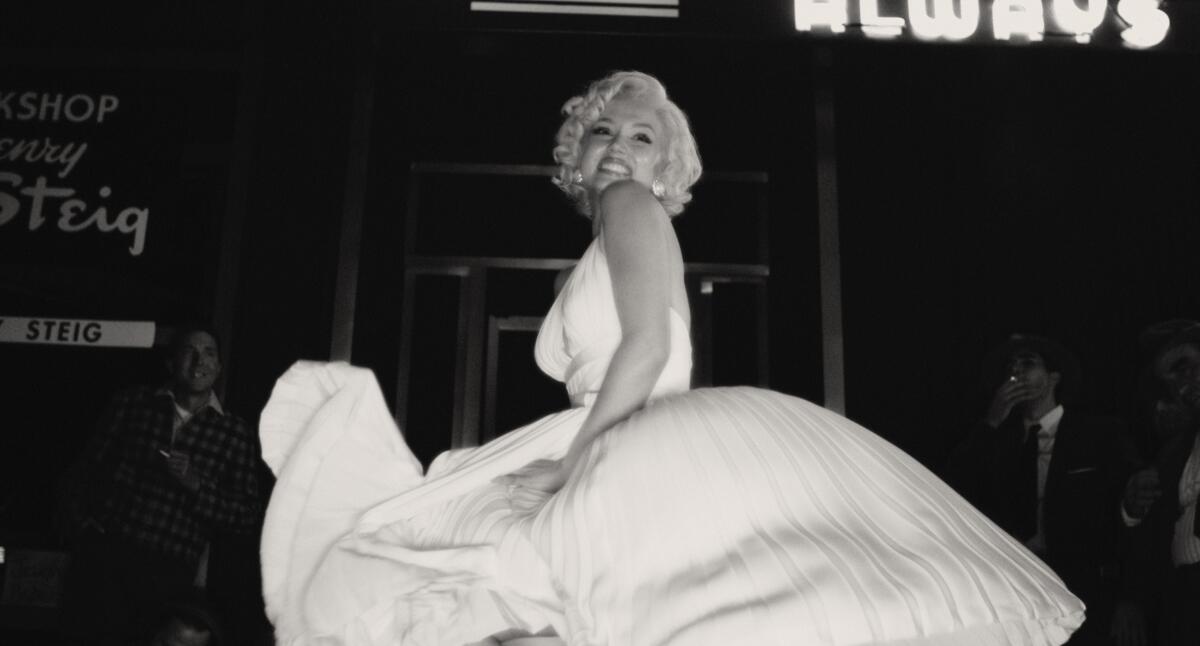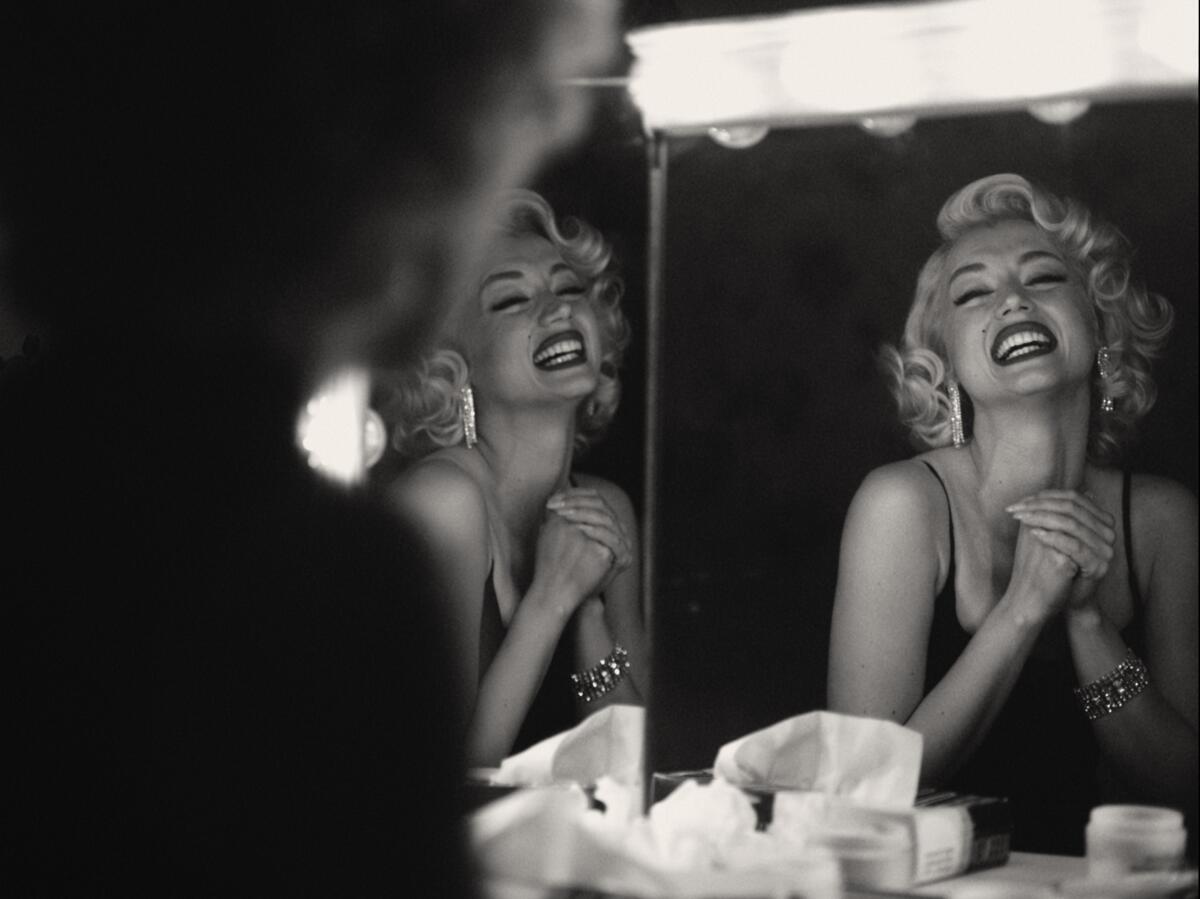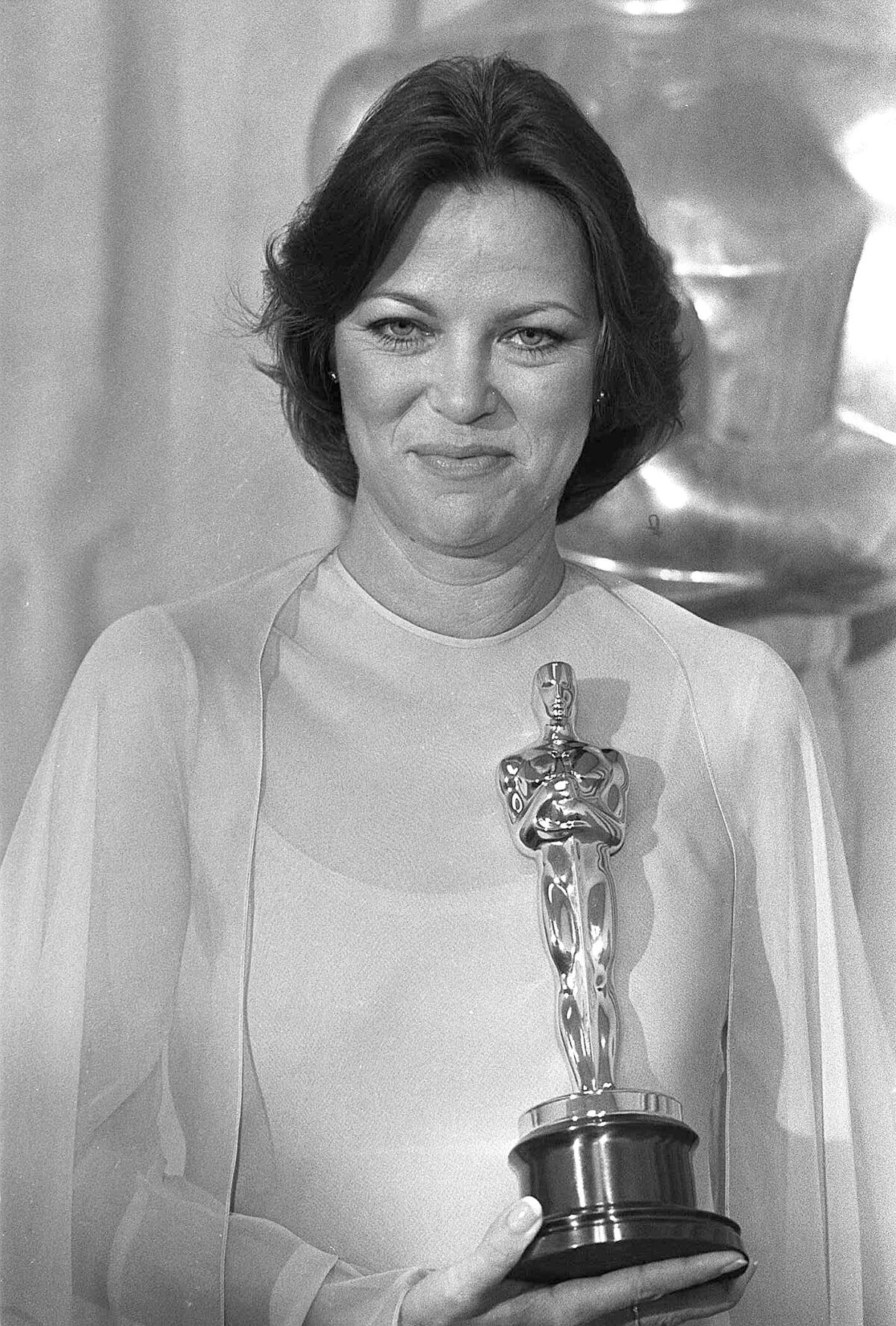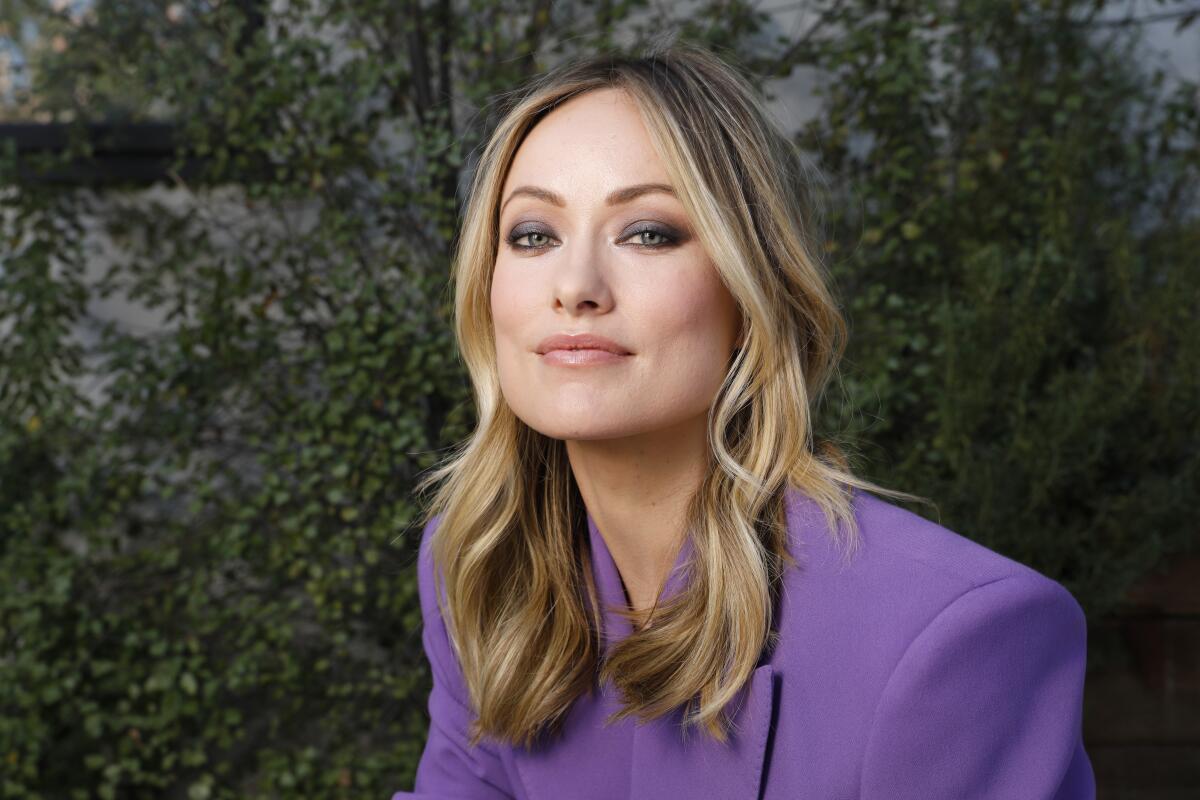Is ‘Blonde’ a bomb?

- Share via
I’m wondering if I were sitting in the outfield bleachers, wearing a glove, waiting for Aaron Judge to hit No. 61 and he swings and connects and the ball is coming right at me ... how far am I willing to lean over the rail to pay off my mortgage and take an early retirement?
Sign up for The Envelope
Get exclusive awards season news, in-depth interviews and columnist Glenn Whipp’s must-read analysis straight to your inbox.
You may occasionally receive promotional content from the Los Angeles Times.
At least a couple more inches, right? Then again, due respect to the fan who just missed the catch ... because if your birth name is Frankie Lasagna, you’re already in the hall of fame.
“I would never ever bring a glove other than this situation,” Lasagna said. “I needed a bigger one.”
I’m Glenn Whipp, columnist for the Los Angeles Times, host of the Envelope’s Friday newsletter and the guy heading to the sporting goods store to pick up an extra-large mitt for the weekend.
Critics not happy with ‘Blonde’
“Blonde,” Andrew Dominik’s look at the tragic life of Marilyn Monroe, has arrived on Netflix and no one — fans, critics, conspiracy theorists — seems to be too happy about the film. My colleague, Times film critic Justin Chang, calls it a “dazzling, depressing and fatally incurious movie.”
“In ‘Blonde,’” Justin writes, “Monroe’s pain is never final. The insults, the abandonments, the beatings, the rapes, the addictions, the losses of consciousness and selfhood — these aren’t just cruel twists or setbacks; they’re the movie’s organizing principles.”
New York Times film critic Manohla Dargis wasn’t a fan either, writing that Dominik reduces Monroe to just “tears and trauma and sex, lots and lots of sex.”
“Dominik is so far up Marilyn Monroe’s vagina that he can’t see the rest of her,” Manohla writes.
The tone of these reviews might prod the curious to check out the movie, which I’d recommend if only for the humanity De Armas brings to the role. This year’s lead actress Oscar field is crowded — Cate Blanchett (“Tár”), Michelle Yeoh (“Everything Everywhere All at Once”), Viola Davis (“The Woman King”) and Michelle Williams (“The Fabelmans”) are early favorites — but De Armas deserves to be considered too. It’s fair to wonder though how many academy members will have the patience to suffer along with her through this three-hour movie.

RIP Louise Fletcher
Louise Fletcher was a terrific actor with a long, varied, interesting filmography amassed over five decades. (Her guest turn as Frank Gallagher’s profane mom in “Shameless” was a beaut.) But most audiences know her solely for her Oscar-winning performance as Nurse Ratched in Milos Forman’s “One Flew Over the Cuckoo’s Nest.” Up against Jack Nicholson, who also won an Oscar for the film, Fletcher embodied cold, institutional power. She was so chilling, so brilliant that the role typecast her for the rest of her career.
“I envied the other actors tremendously,” Fletcher told the New York Times, talking about playing the authority figure in a mental institution. “They were so free, and I had to be so controlled.”
Accepting the Oscar, Fletcher, a child of deaf parents, was the first person to sign her speech at the Academy Awards. Watch it, both for the memorable way she thanked voters for hating her and for presenter Charles Bronson’s glorious moustache.
Fletcher passed away last Friday. She was 88.

Enjoying this newsletter? Consider subscribing to the Los Angeles Times
Your support helps us deliver the news that matters most. Become a subscriber.
Will the ‘Don’t Worry Darling’ fuss hurt Olivia Wilde?
Let’s answer the headline with a simple: No. No it won’t. But my colleague Josh Rottenberg asked around town, wondering whether the rumors of on-set difficulties and feuds during the making of Wilde’s psychological thriller “Don’t Worry Darling” will hurt the filmmaker moving forward.
“Men are given lots of second chances — women are not,” says Melissa Silverstein, founder and publisher of Women and Hollywood, a nonprofit that advocates for gender parity in the film business. “I wish we lived in a time where people judge you for what’s on the screen, versus, you know, who you’re sleeping with.”
One problem, of course, is that what Wilde put on screen with “Don’t Worry Darling” wasn’t all that compelling — though it wasn’t quite as bad as some critics made it out to be. The movie’s setup and meticulously crafted world grabbed my interest initially, but the story’s pacing was off and, at times, exhausting. And its examination of gender roles never ventured beyond the obvious.
But there were intermittent signs of life in the film and of obvious talent behind the camera. I’m interested in seeing Wilde’s next movie, and I doubt I’m the only one.

Feedback?
I’d love to hear from you. Email me at glenn.whipp@latimes.com.
Can’t get enough about awards season? Follow me at @glennwhipp on Twitter.
Sign up for The Envelope
Get exclusive awards season news, in-depth interviews and columnist Glenn Whipp’s must-read analysis straight to your inbox.
You may occasionally receive promotional content from the Los Angeles Times.




